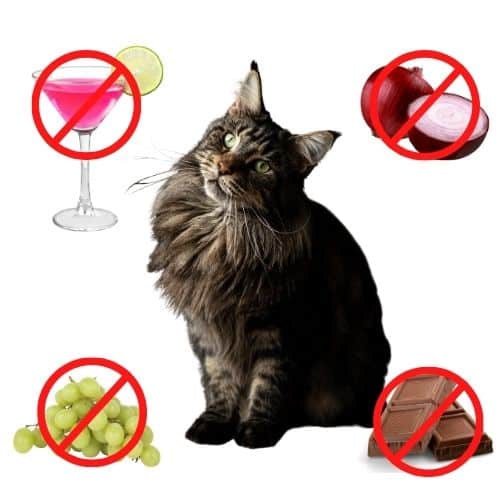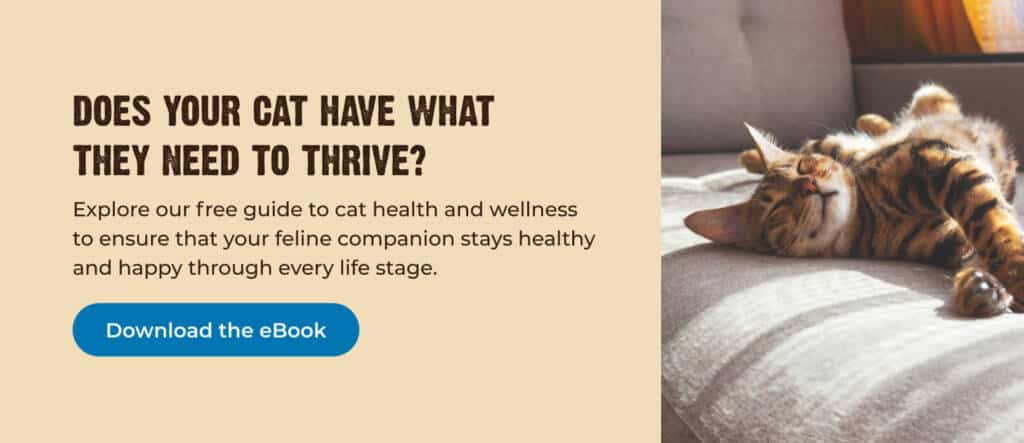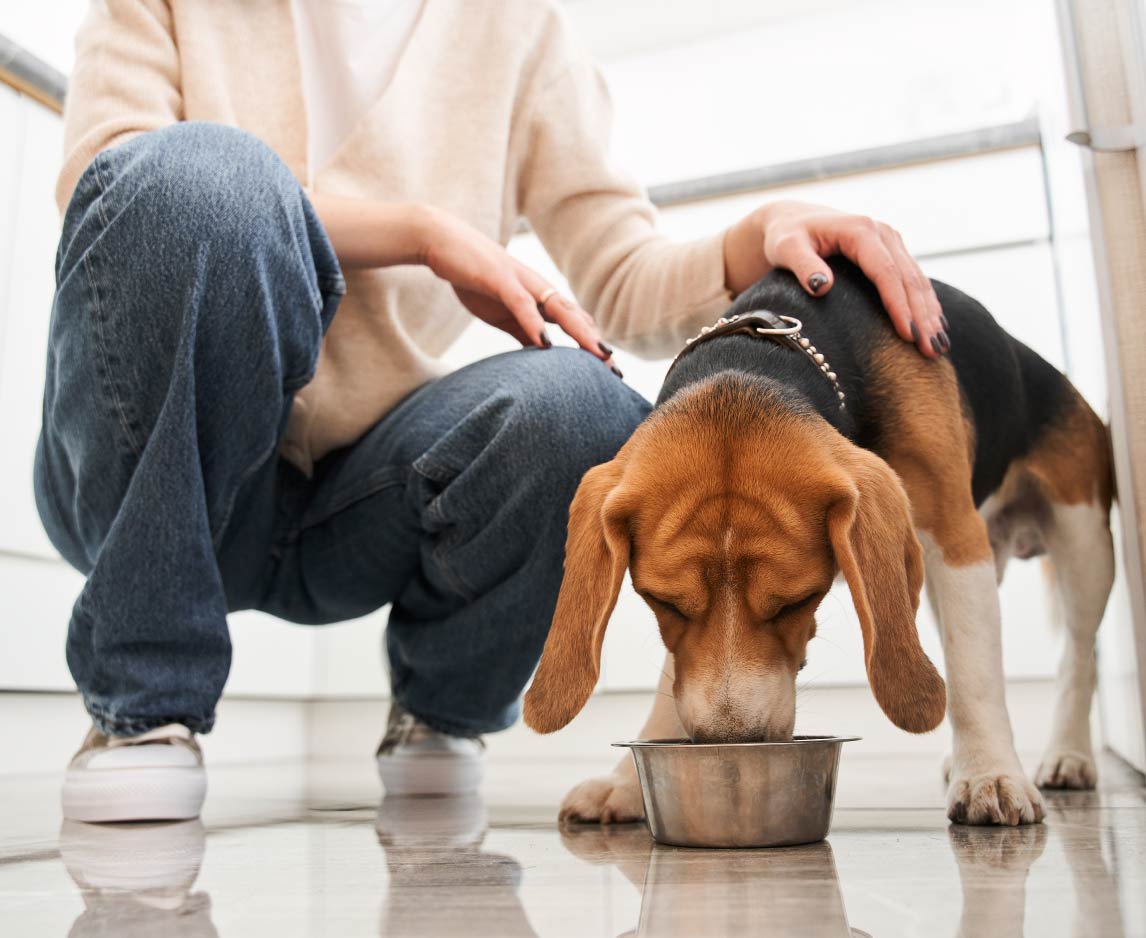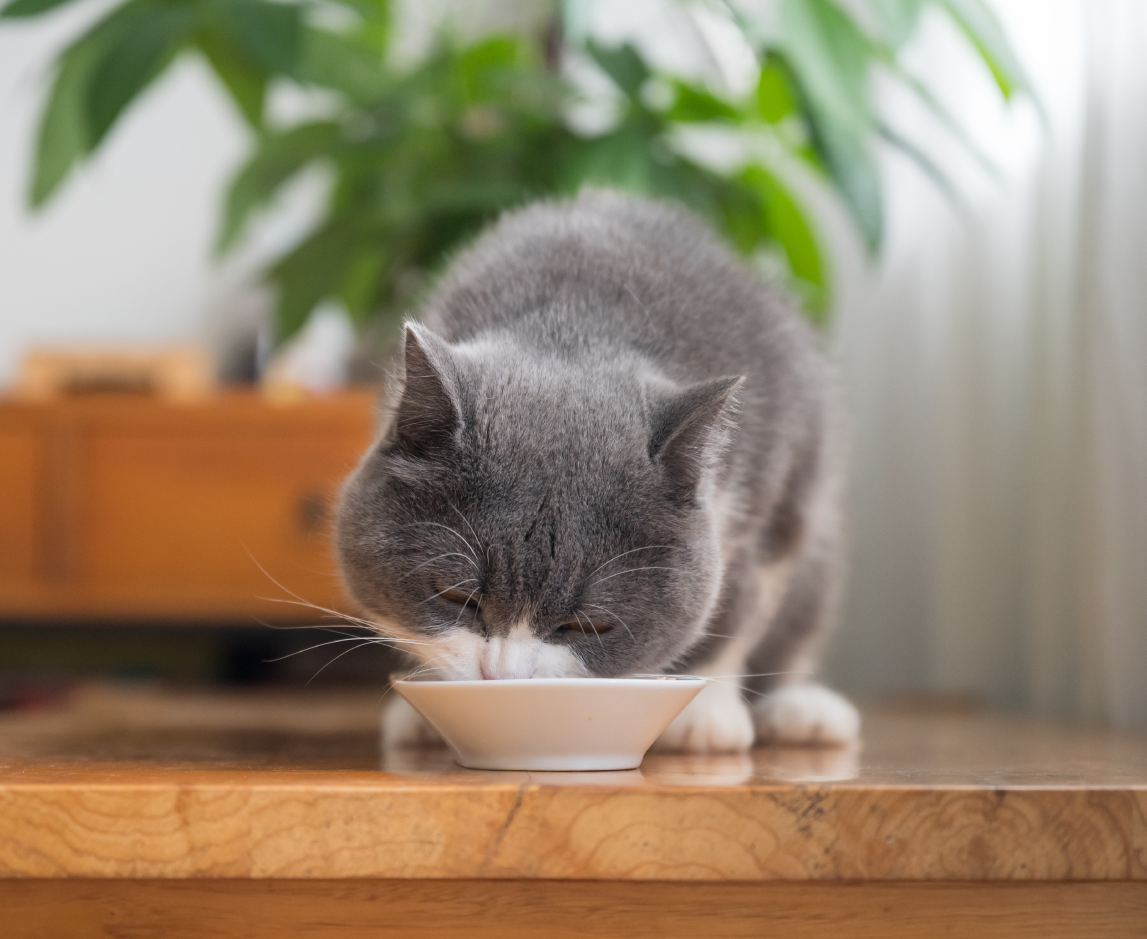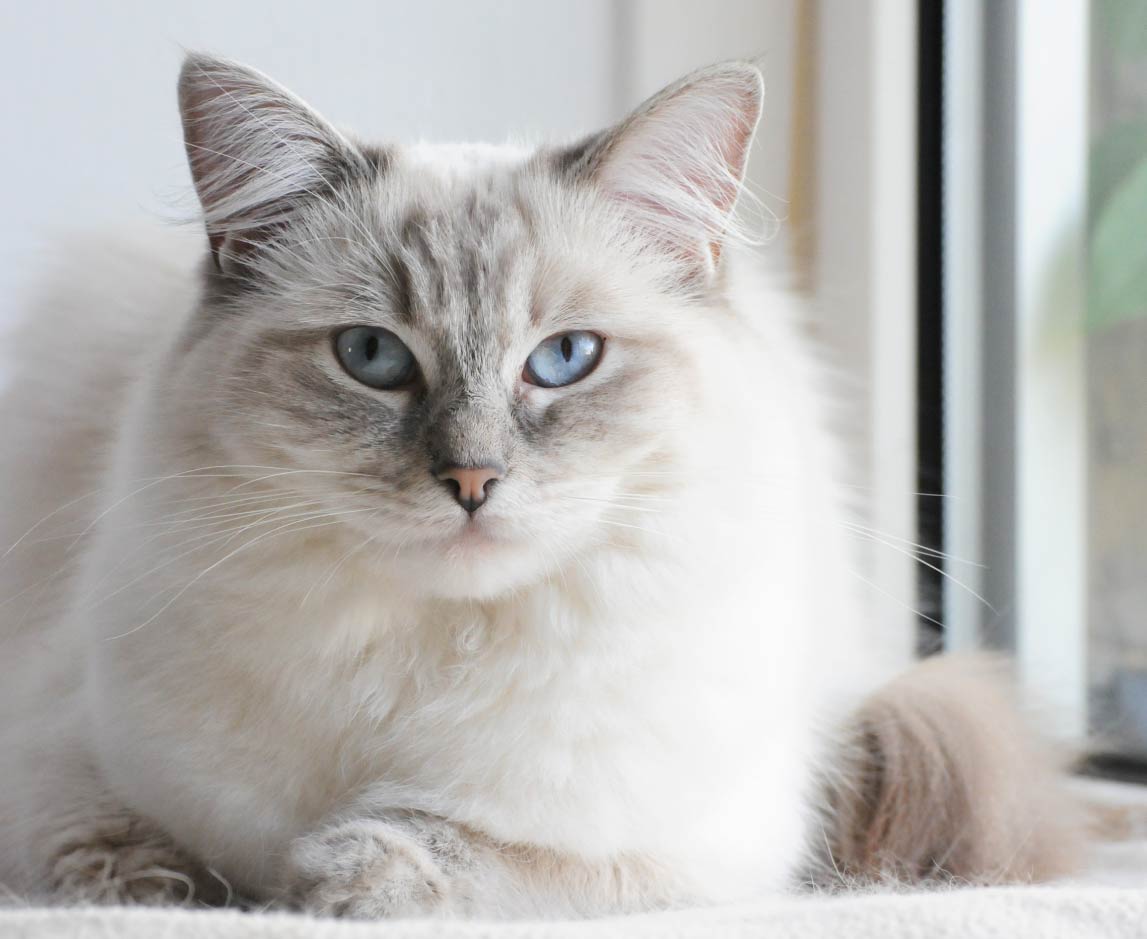Humans and cats both need diets that include water and protein, but that’s usually where the similarities end. Cats have starkly different nutritional needs and many human foods can be poisonous, causing digestive issues, vitamin deficiencies, anemia and even life-threatening conditions. So even though your curious cat might be intrigued by the smell of your dinner simmering on the stove, it’s crucial to know how the ingredients could affect their health. Read on for details:
11 Foods That Are Toxic to Cats
1. Alcohol
Wine, beer, liquor and food that contains alcohol can result in diarrhea, vomiting, breathing problems, tremors and other serious conditions. Alcohol is toxic to cats and can cause death. Avoid any alcohol and products and foods that contain alcohol. If you think your cat has consumed anything that contains alcohol, seek medical assistance immediately.
“Just two teaspoons of whisky can cause a coma in a 5-pound cat,” reports Fetch by WebMD. “And one more teaspoon could kill it.
2. Chocolate
The cacao seeds that are used to make chocolate contain methylxanthines, which are naturally occurring compounds found in many plants. Theobromine and caffeine are two types of methylxanthines that can be very toxic to cats.
Cats that experience chocolate poisoning usually show the following symptoms:
- Diarrhea
- Vomiting
- Weakness
- Rapid breathing
- Elevated temperature
- Muscle rigidity
- Increased reflex response
- Seizures
- Cardiac arrest
- Coma
Chocolate Toxicity Levels in Cats
The Spruce outlines the toxicity levels by different types of chocolate for an 8 lb. cat:
| Type of Chocolate | Minimum Toxic Amount for an 8 lb. Cat |
| Milk | 1.14 oz. |
| Dark | 0.5 oz. |
| Semi-Sweet | 0.5 oz. |
| Baking | 0.2 oz. |
| White | n/a |
This chart lists approximate amounts. If your cat consumes any amount of chocolate, you should consult with your vet.
3. Dog Food
Dog food contains many of the same ingredients as cat food and an occasional bite here and there won’t necessarily be harmful. However, dog food should never be used as a substitute for cat food. Cats have specific nutritional needs that they get from cat food, such as high amounts of protein, vitamins and fatty acids.
Dog food should never be a substitute for cat food. Fetch by WebMD says that a steady diet of dog food could cause severe malnourishment in cats.
4. Grapes & Raisins
According to the ASPCA, grapes and raisins contain an unknown toxic substance that can cause kidney failure in cats. To be safe, the ASPCA advises pet owners to avoid feeding grapes or raisins to their cats.
5. Liver
Too much liver or products containing liver, such as overfeeding liver treats, can cause vitamin A toxicity, a serious condition that can affect a cat’s bones and lead to death in severe cases. Fetch by WebMD notes that effects of vitamin A toxicity include deformed bones, bone growths on the elbows and spine, and osteoporosis.
6. Milk & Dairy Products
Cats become lactose intolerant as they mature, which means they have trouble digesting dairy products. Consuming high or frequent amounts of dairy products containing lactose can lead to gastrointestinal pain and diarrhea.
7. Onions, Garlic & Chives
Onions can break down a cat’s red blood cells, which can cause weakness, shortness of breath and anemia. Garlic (which is 5x as potent as onions) and chives can cause similar health problems.
Whether powdered, cooked, raw or dehydrated, do not give your cat onions, garlic or chives.
8. Raw/Undercooked Meat, Eggs & Fish
Raw meat, raw fish and raw eggs often contain bacteria like Salmonella and E. coli that can be harmful to both humans and immunocompromised pets. Properly prepared raw meat-based diets are wonderful for the obligate carnivore kitties.
Fetch by WebMD explains that raw eggs contain an enzyme that decreases the absorption of biotin (a B vitamin), which can lead to skin and coat problems. Raw fish also contains an enzyme that destroys thiamine, another essential B vitamin. Without thiamine, a cat can develop neurological problems that could lead to convulsions or coma. However, cooked eggs are fine for cats and are an excellent food or treat if given intermittently.
Are Raw Food Diets Safe for Cats?
There are safe ways to feed your cat raw foods. Prepared, raw diets made specifically for pets are regulated to ensure that they do not contain harmful bacteria. You can learn more about raw diets for cats in our blog post: Should You Feed Your Cat a Raw Diet? 11 Questions to Ask First.
9. Canned Tuna
Feeding your cat a steady diet of canned tuna can cause malnutrition because it doesn’t contain the necessary nutrients for a feline. Too much tuna can also increase the risk of mercury poisoning.
If your cat loves the fishy taste and smell of tuna, you can try feeding them a prepared cat food made with human-grade tuna. Pet foods designed to be fed on a regular basis are required to provide the vitamins and minerals cats need, so they will be getting the right nutrients while also satisfying their craving.
10. Uncooked Potatoes & Tomatoes
ModernCat reports that raw potatoes and tomatoes can cause gastrointestinal distress, but they have no toxic effects if cooked. However, green potatoes (cooked or raw) can lead to cardiac issues, hallucinations and paralysis, so make sure to keep them away from your cat.
11. Yeast Dough
The ASPCA says that “yeast dough can rise and cause gas to accumulate in your pet’s digestive system.” This can cause your cat’s stomach to bloat and become painful. Their stomach can potentially twist which would be a life-threatening emergency.
The most common signs of toxicity in cats are:
- Breathing problems
- Confusion
- Coughing
- Depression
- Diarrhea
- Dilated pupils
- Drinking and urinating more
- Upset stomach
- Seizures
- Shivering
- Skin irritation
- Tremors
- Vomiting
- Weakness
What to Do if Your Cat Eats Something Toxic
If you suspect that your cat may have eaten something toxic, you should:
- Watch for symptoms. Keep a close eye on your cat to observe any non-typical behavior or signs of stress.
- Call your vet. If it’s outside of your regular vet’s operating hours, contact an emergency vet clinic.
- Bring vomit or stool samples to the vet, if you are able.
1-800-PetMeds reports that “about 25% of poisoned pets recover within two hours.” Pets can often be treated at home under the guidance of a veterinarian or with advice from the ASPCA’s Poison Control Center.
Human Foods That Are Safe For Cats
Cheese
Cheese can be high in protein, which makes it a nice occasional treat. As we mentioned, cats have a sensitivity to dairy products that can cause gastrointestinal pain or diarrhea. If you give your cat cheese, make sure it is in a very small amount and not on a frequent basis.
Cooked Eggs
Eggs can be a good source of protein for your cat, but make sure that they are cooked. Raw or uncooked eggs can contain harmful bacteria that can upset your cat’s digestive system.
Fish
Rich in omega-3 fatty acids, fish can help with arthritis, kidney disease and heart disorders. Choose canned or cooked fish and only give it to your cat as a treat every now and then. Just don’t give your cat raw fish, like sushi.
Meat
Cats in the wild eat high-protein, meat-based diets, and domesticated felines need the same kind of nutrition.
Feeding your cat a meat-based diet is the best way to make sure that they are getting the nutrients they need. Always choose wet canned food and dry food that features high-protein, high-moisture, moderate fat and low carbs, or a properly balanced and prepared raw or cooked diet.


